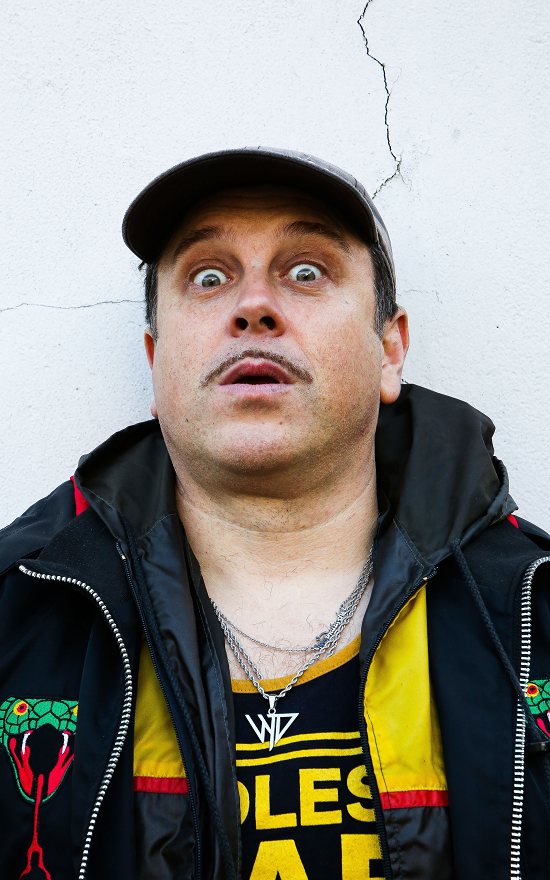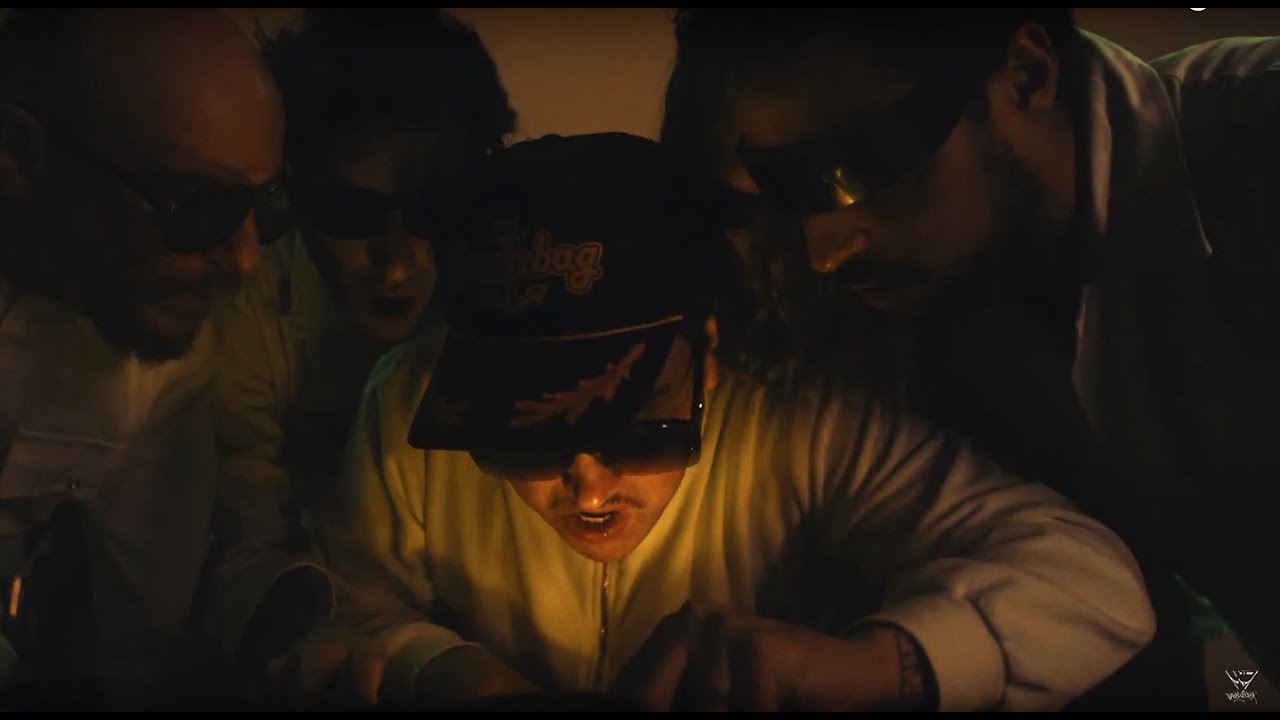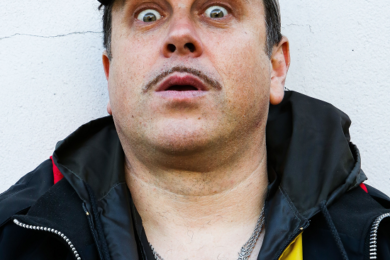Photos by Luis Kramer
In cities across the world stand ugly modern obelisks called hotspots. They provide WiFi, a speaker on which to make calls, a screen displaying weather information, and sockets to charge electronic devices. You can assume that the local authorities who installed them there see them as glossy and futuristic, a way of painting over the cracks in society that were symbolised by the dilapidated phone boxes that once stood in their place.
Around the hotspots, however, have grown little micro-communities making use of the services, populated by the eccentric outsiders that local authorities are so keen to sweep under the rug. The relative anonymity with which they can be used attracts a certain type of activity. “It’s the same old story with a new twist,” says Warmduscher’s Ben Romans-Hopcraft. “You see these dishevelled looking people but with smartphones, and you realise they’re just trying to score, but through WhatsApp. At least with the old phone boxes it was concealed, now it’s as clear as day!”
“There’s this one guy in Balham,” says frontman Clams Baker Jr, this really heavy old African dude. He turns up with his suit on with ten reusable batteries, and somehow he just plugs every one in, and sits there with a tiny little speaker playing music. It’s great because it’s outside a Whole Foods-type store, so you’ve got this contrast.” There’s a timelessness to them to which he’s drawn. “They could be in any generation, these ancient caners, these immortal party poodles, they’re just using whatever new technology to still get what they want for their outsider living.”
Warmduscher’s new album, At The Hotspot is set in such a scene, its seediness and eccentricities elevated and dramatized. “The idea of there being characters on the hotspot circuit, people trying to pull rank on the WiFi,” says Romans-Hopcraft. It’s a concept record, he says. “Even though that term might have a bad connotation historically, in my view Clams is at his best when he can operate within a world, create a comic book strip, a bizarre fantasy of reality.” The album opens with a wonky funk introduction. “At the hotspot, you might find love!” proclaims Baker with a ringmaster’s theatricality over a muddy instrumental, veering maniacally back and forth between evangelism and a sinister growl. “At the hotspot, you might find pain! You might find joy! You’ll find whatever, at the hotspot.”

From their beginnings as an impromptu house party band amid the debauched so-called ‘South London scene’ of the mid 2010s, there’s always been a seediness to Warmduscher. On At The Hotspot, however, they’re revelling in that sleaze like never before, taking the energy of the hotspot circuit in order to push themselves into a universe of their own making, Baker conjuring indelible characters like the impotent saucepot ‘Baby Toed Joe’, the coked-up insomniac ‘Hot Shot’, or the viagra-shilling ‘Fatso’. At times it’s wilfully ridiculous, but that’s kind of the point, says Romans-Hopcraft. “Everything we do has always had a gesture of humour. People might think that means we don’t take it seriously, but for us it’s more revealing than trying to sound cerebral. When I work with Warmduscher, I want to crystallise that camaraderie and humour in the song. I don’t care where we go, as long as that’s there.” Adds Baker: “It’s a throwback to old rock and roll. All they’re singing about in those old songs is fucking, essentially, they’re just changing the words to get around censorship and having a good time. I like heavy, sombre music as well, but it’s not what I’m interested in when it comes to going out and putting on a show.”
All of the musicians play in a number of other projects, from Romans-Hopcraft’s Insecure Men with Fat White Family’s Saul Adamczewski, to Baker and Quinn Whalley’s work with electronic project Paranoid London. Whenever they write, however, it’s clear when they’re penning a Warmduscher song. “Songs just reveal themselves, it’s a side of my personality,” says Romans-Hopcraft. “It’s anything that’s nice and greasy. I wouldn’t say there’s a specific thing that makes the Warmduscher sound,” says drummer Bleu Ottis, with which Romans-Hopcraft agrees. “It’s not about any palette of genres, it’s more about the feeling. You can slump to the music but also party to the music. That’s the way I see it.” By that measure, Hotspot is pure Warmduscher – their greasy essence extracted at 24 karat purity, then expanded into a whole sleazy universe.
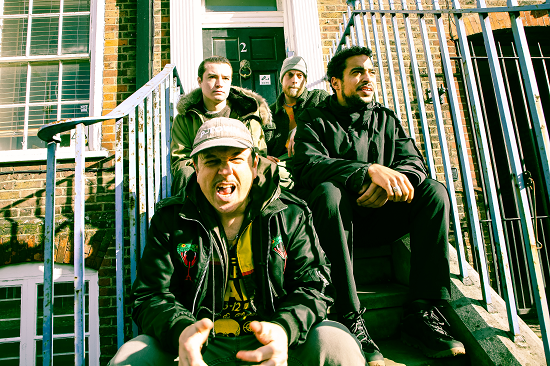
Hot Spot does switch things up for Warmduscher on a number of levels, however. It’s their first album for Bella Union, and also sees them depart for the first time from regular producer Dan Carey. They worked instead with Joe Goddard and Al Doyle of Hot Chip. The switch in producers was not by design, however. They had fleshed out the concept and prepared the tracks in advance during lockdown – “For the first time we wrote surrounded by computers rather than just bashing a load of stuff out into a phone,” says Romans-Hopcraft – and by summer 2021, after numerous pandemic-related delays, they were all set to link up with Carey as per usual. A few days out from the sessions, however, his manager called with the bad news. Carey had fallen ill with coronavirus, and the sessions were indefinitely postponed. They could either wait for another gap in his unbelievably tight schedule once he recovered, or they could find someone else at short notice.
Fortunately, at the very moment he received the call, Baker was recording a different project, with former Sepultura drummer turned London DIY scene fixture Iggor Cavalera and his wife and Mixhell DJ partner Laima Leyton. Goddard and Doyle, who were also working on the project, were in the room at that very moment, and offered immediately to step in. “I literally was stood there, saying ‘Fuck! Dan can’t do the thing!’ And they just said ‘We’ll do it, it’s fine!’” Doyle and Goddard’s process, set about with the nuance of master pop crafstmen, was miles from what Warmduscher were used to with Carey, who has become famed for his urgent, fast-and-loose approach to the studio. They recorded 2017’s Whale City, they remember, as two live takes, one for side A and one for side B, with minimal opportunity to go back and sand down the edges. “If we messed up a song, we had to go back and start the side all over again, we had three days to do it,” Baker remembers. For Hotspot, however, they had a relatively expansive ten days in the studio together, time to tweak, add overdubs, and experiment with flourishes like the steel drums on ‘Supercool’.
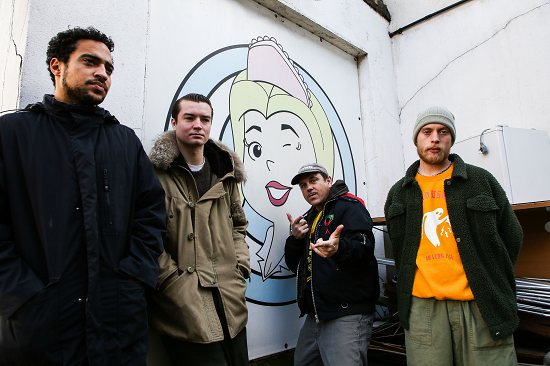
Each respective process opens up its own possibilities. “We had more time to question ourselves, which is a good thing and a bad thing,” says Romans-Hopcraft. On the one hand, “we’ve never actually had a legitimate studio experience like this with Warmduscher before, we’ve always been on the fringes, in the backrooms after gigs, hustling for our time in the studio, so it was nice to have this indulgence, but I also think that being precise is the best way to do it. If I start to question myself I start to hate it, I’m picking out licks and basslines just because I’ve got a day to fill. I think we want to have our cake and eat it.” They’ve come to see the two approaches as bringing out different aspects of the group. “Dan brings out the guitar element of what we do, Joe and Al are in the more electronic side of things” Romans-Hopcraft adds. “Even Dan had said in the past that it would be good for us to get a perspective from producers who work in synthesis, rather than thrashing it out, and if there was ever going to be an album to do that then this would have been the one.”
Despite the lengths to which At The Hotspot pushes Warmduscher’s sleazy side, there was still one point where the band were worried about it being over-sanitised. “I was worried about it being too polished,” says Baker. “I didn’t think anyone was going to like it.” Romans-Hopcraft points out that “for independent musicians, the idea of making your next album is crucial to your sustainability. If it was the 80s we could just say, ‘Ah, we fucked up’. It’s not a case of being anxious about the recordings, it’s about being anxious about doing it again.” The reception so far, however, has been overwhelming. Sparkling lead single ‘Wild Flowers’, for example, has become a minor hit after being A-listed by BBC Radio 6Music. “It’s been played all the time, it’s quite a magical feeling,” says Ottis. “It means that all that shit went out the window,” says Baker. “It feels like people are finally starting to get it.”
Warmduscher’s new album At The Hotspot is released on April 1 via Bella Union. The band play Kentish Town Forum on April 7. Limited edition tickets mailed from and customized by the band can be found here, proceeds from which will be donated to the International Rescue Committee’s humanitarian appeal for Ukraine

